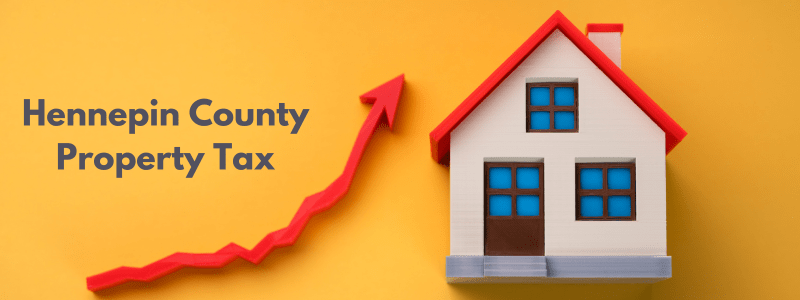
Property taxes are a vital aspect of homeownership and property investment. If you own property in Hennepin County, understanding how these taxes work is essential for managing your financial responsibilities. Property taxes are more than just another bill—they fund critical local services, from schools and public safety to infrastructure and parks.
This guide will break down everything you need about Hennepin County property taxes, including how they’re calculated, where the money goes, and how to navigate payment or relief programs. Let’s dive in!
What Are Property Taxes?
Local governments levied Property taxes on real estate properties to fund public services. They’re calculated based on the assessed value of the property and a specific tax rate.
Why Do We Pay Property Taxes?
Property taxes are essential for maintaining community standards and services. They fund schools, law enforcement, public libraries, and local government operations. Without these taxes, many essential services would struggle to function.
How Are They Different from Other Taxes?
Unlike income or sales taxes, property taxes are tied to the ownership of real estate. They’re recurring expenses that vary depending on local budget needs and property values.
Hennepin County Property Tax Overview
Hennepin County, the largest county in Minnesota by population, has a robust property tax system designed to fund its diverse range of services. Here’s what you need to know:
Who Pays Property Taxes in Hennepin County?
- Residential property owners.
- Commercial property owners.
- Agricultural and industrial property owners.
Where Do These Taxes Go?
Hennepin County uses property tax revenue to fund public services such as:
- Local schools.
- Public safety (police, fire departments, etc.).
- Parks and recreation.
- Roads and infrastructure.
In 2023, over 70% of property tax revenue was allocated to education and public safety, highlighting the direct impact of these funds on daily life in the county.
How Property Taxes Are Calculated
Understanding how your property tax bill is determined can help you plan your finances and spot potential errors. Here’s a breakdown:
Step 1: Property Assessment
Every year, the Hennepin County Assessor’s Office evaluates the market value of your property. This value reflects what your property would likely sell for in an open market.
Step 2: Applying the Tax Rate
Once the market value is assessed, it’s multiplied by a classification rate. The result is your “taxable market value.” The county then applies the tax rate based on levies approved by local governments.
Step 3: Levy Calculations
Local authorities, including cities and school districts, set levy amounts based on budget requirements. These levies directly influence the tax rate applied to your property.
Factors That Can Affect Your Taxes
- Property improvements or renovations.
- Changes in local government budgets.
- Economic factors like inflation or property market trends.
Property Tax Statements and Deadlines
Every year, Hennepin County sends out property tax statements outlining your obligations. Staying on top of these deadlines is crucial to avoid penalties.
When Are Statements Issued?
Tax statements are typically mailed out in March. They include detailed information about your property’s assessed value, tax rate, and total due.
Key Deadlines to Remember
- First-half payment: Due in May.
- Second-half payment: Due in October (for most properties).
Missing these deadlines results in penalties that increase the longer the payment is overdue.
What Happens If You Miss a Payment?
Late payments incur interest and fees, which can add up quickly. If unpaid for an extended period, your property could face a tax lien or even foreclosure. To avoid this, consider enrolling in a payment plan if needed.
Where Do Your Property Taxes Go?
One of the most frequent questions about property taxes is, “Where does the money actually go?” Here’s a simple breakdown:
- Education (40%-50%): Funding for public schools, teacher salaries, and facility maintenance.
- Public Safety (20%-25%): Police, fire departments, and emergency services.
- Infrastructure (10%-15%): Roads, bridges, and other public works.
- Parks and Recreation (5%-10%): Maintenance of parks, trails, and recreational facilities.
- Miscellaneous Services (5%-10%): Libraries, health services, and administrative costs.
How to Appeal Your Property Tax Assessment
If you believe your property taxes are too high, you have the right to appeal the assessment. Here’s how to navigate the process effectively:
Step 1: Review Your Assessment Notice
Hennepin County sends an annual notice of property valuation. Compare the assessed value to recent sales of similar properties in your area. If it seems disproportionately high, you may have grounds for appeal.
Step 2: Gather Evidence
Prepare documentation to support your claim, such as:
- Recent appraisals of your property.
- Sales data for comparable homes or properties.
- Evidence of property damage or factors that reduce its value.
Step 3: File Your Appeal
- Informal Review: Contact the Hennepin County Assessor’s Office to request a review. This often resolves discrepancies without formal proceedings.
- Formal Appeal: If the informal review isn’t satisfactory, file an appeal with your local Board of Appeal and Equalization or the Minnesota Tax Court.
Step 4: Attend the Hearing
Present your case, including all supporting evidence. Be concise and focus on facts that demonstrate your property’s value.
Tips for a Successful Appeal
- Act quickly, as deadlines for filing appeals are strict.
- Be prepared to answer questions about your property and evidence.
- Consider hiring a professional appraiser for stronger support.
Property Tax Relief Programs in Hennepin County
Hennepin County offers several programs to ease the property tax burden for eligible residents. These include credits, deferrals, and exemptions.
1. Homestead Credit
This program reduces taxes for homeowners who use the property as their primary residence. The credit is applied automatically once the homestead classification is approved.
2. Senior Citizen Property Tax Deferral
If you’re a senior citizen on a fixed income, you may qualify to defer a portion of your property taxes until the property is sold or inherited. Eligibility criteria include age and household income limits.
3. Veterans’ Exemptions
Disabled veterans and their families may be eligible for a reduction or exemption from property taxes. The amount varies based on the level of disability.
4. Renter’s Property Tax Refund
Although renters don’t directly pay property taxes, landlords pass the cost along. Minnesota offers a property tax refund for renters based on income and rent paid.
How to Apply
- Visit the Hennepin County website or contact the assessor’s office for application forms.
- Submit required documentation, such as proof of income or disability.
Paying Your Property Taxes
Hennepin County makes it easy to pay property taxes through multiple channels. Choose the option that best suits your convenience.
1. Online Payment
Visit the county’s official website to pay using a credit card, debit card, or bank account transfer. Be aware of potential service fees for certain payment methods.
2. By Mail
Send your check or money order along with the payment stub to the address listed on your property tax statement. Ensure the envelope is postmarked by the deadline to avoid penalties.
3. In-Person Payment
You can pay at the Hennepin County Government Center or authorized service locations. This is a good option for last-minute payments.
4. Payment Plans
If you cannot pay the full amount by the due date, contact the county to set up a payment plan. This allows you to spread out payments over time.
Partial Payments
Hennepin County accepts partial payments, but you must pay the full amount by the deadline to avoid penalties.
Tax Implications of Owning vs. Renting
Property taxes impact everyone in Hennepin County, whether you own or rent a property. Understanding the differences is key to financial planning.
For Homeowners
- Direct Responsibility: Property owners pay taxes directly based on their property’s assessed value.
- Tax Benefits: Homeowners may be eligible for deductions on federal and state income taxes.
For Renters
- Indirect Impact: Renters don’t pay property taxes directly, but landlords include these costs in rent.
- Renters’ Refund: Minnesota’s property tax refund program provides relief to renters based on their income and rent paid.
Which Option is Better?
While owning allows you to build equity and claim tax deductions, renting offers flexibility without the direct burden of property taxes, choose what aligns with your financial goals.
Changes in Property Taxes Over Time
Property taxes in Hennepin County have experienced fluctuations due to economic factors and budgetary needs.
Trends Over the Last Decade
- Rising Home Values: Higher market values have increased tax assessments.
- Increased Local Levies: Growing demand for public services has led to higher tax levies.
Impact of Inflation
Inflation affects the cost of maintaining public services, which in turn impacts property tax rates. Budget shortfalls are often addressed by increasing levies.
Future Projections
- Expect gradual increases as home values continue to rise.
- Local initiatives and infrastructure projects may lead to higher levies.
How to Stay Updated on Your Property Taxes

Staying informed about changes to your property taxes helps you avoid surprises. Here’s how:
Online Tools
Use Hennepin County’s online portal to track tax assessments, payments, and deadlines.
Email Notifications
Sign up for email alerts to receive updates about deadlines or changes to tax laws.
Regular Property Reviews
Keep an eye on your property’s assessed value and market trends to anticipate changes.
Impact of Non-Payment of Property Taxes
Failing to pay property taxes can lead to serious consequences, including:
- Tax Liens: The county places a lien on your property, which must be cleared before selling or refinancing.
- Foreclosure: Persistent non-payment can result in losing your property.
- Credit Impact: Unpaid taxes can damage your credit score.
How to Avoid These Issues
- Enroll in a payment plan if you’re struggling financially.
- Stay proactive by setting reminders for deadlines.
Conclusion
Understanding Hennepin County property taxes is crucial for effective financial planning. From calculating your tax bill to exploring relief programs, being informed empowers you to manage your responsibilities while taking advantage of available benefits.
FAQs
1. Can I pay my property taxes with a credit card?
Yes, Hennepin County accepts credit card payments online, but be mindful of transaction fees.
2. How are property taxes affected by home improvements?
Significant improvements may increase your property’s assessed value, leading to higher taxes.
3. Can I appeal my taxes every year?
Yes, you can file an appeal annually if you believe your assessment is inaccurate.
4. Do renters contribute to property taxes?
Indirectly, yes. Property owners pass on tax costs through rent.
5. What’s the penalty for late payments?
Late payments accrue interest and fees. The longer the delay, the higher the penalties.
To further enhance your financial planning skills, don’t miss our detailed guide on What Is Budgeting and Why Is It Important?
